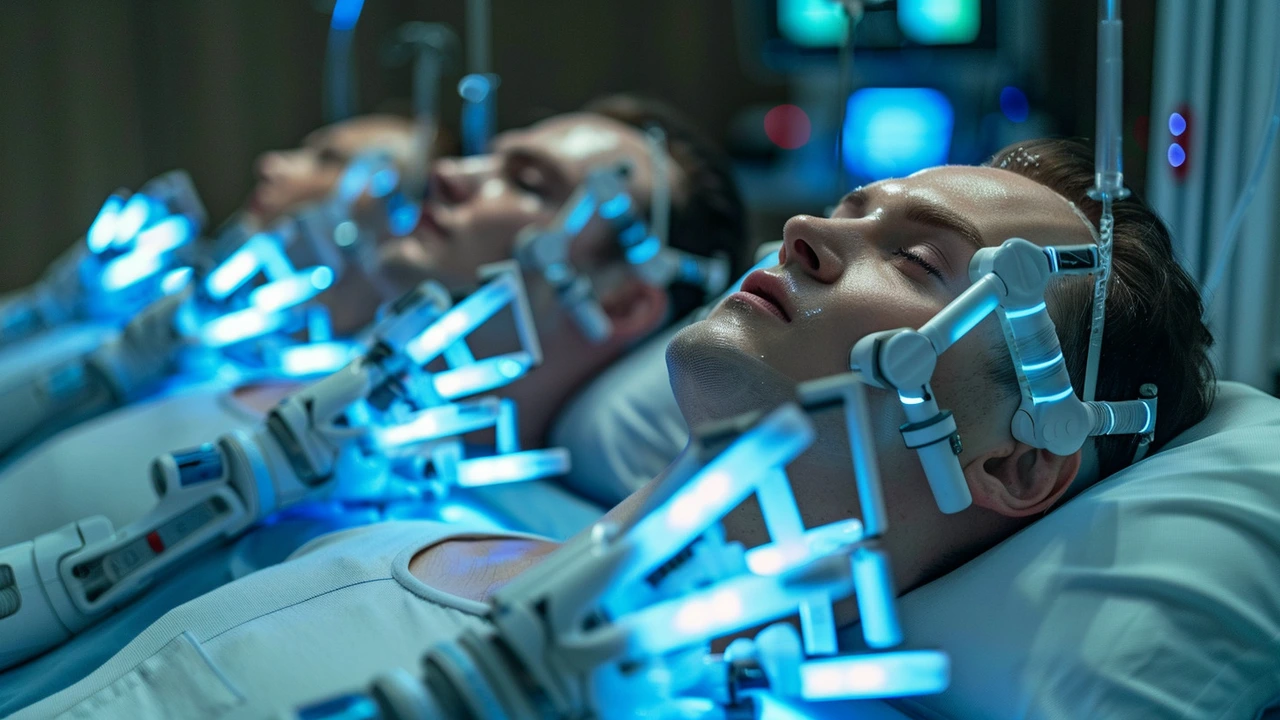In a move that seems to belong to the realm of science fiction, BrainBridge, a startup within neuroscience and biomedical engineering, has unveiled an ambitious project: a robotic head transplant system. This innovative concept aims to offer a new chance at life for patients with terminal illnesses and neurodegenerative diseases by transplanting their heads onto healthy donor bodies. The procedure, which leverages cutting-edge robotics, artificial intelligence, and real-time molecular-level imaging, promises to ensure the precise reconnection of critical structures, including the spinal cord, nerves, and blood vessels.
While the idea of head transplants may sound far-fetched, BrainBridge is approaching this groundbreaking project with both scientific rigor and an ethical framework. The concept is still in its early stages, and many challenges lie ahead, particularly regarding the repair of spinal cord damage. The company is actively seeking top talent in various fields to collaborate on finding solutions to these significant issues. By fostering a collaborative environment, BrainBridge hopes to accelerate progress and revolutionize the fields of spinal cord reconstruction and whole-body transplantation.
The vision of the head transplant system is rooted in the desire to offer renewed hope to patients suffering from conditions that are currently untreatable. Imagine a scenario where an individual with a life-threatening illness or severe paralysis could essentially receive a new body. The proposed process involves leveraging a sophisticated robotic system that would simultaneously remove the heads of both the donor and the recipient. Following this, the recipient's head would be precisely transferred to the donor's healthy body under the guidance of AI and real-time molecular imaging.
The success of such a complex procedure relies heavily on advanced technology. BrainBridge plans to use artificial intelligence to guide the robotic system, ensuring surgical precision that would be impossible with human hands alone. Additionally, real-time molecular-level imaging would provide an unprecedented level of detail, allowing for the accurate reconnection of nerves, blood vessels, and the spinal cord. This integration of AI and robotics represents a significant leap forward in the field of medical science.
Despite the potential benefits, the project is not without its obstacles. One of the most critical hurdles is the current inability to fully repair nerve and spinal cord damage. To tackle this, BrainBridge is actively recruiting specialists in neurology, biomedical engineering, and related fields. The company believes that by bringing together the brightest minds and encouraging interdisciplinary collaboration, they can drive breakthrough innovations in spinal cord repair.
Furthermore, the ethical implications of head transplantation cannot be ignored. The procedure raises complex questions regarding identity, the definition of self, and the moral ramifications of such a profound intervention. BrainBridge is committed to engaging with the scientific community, policymakers, and the public to address these concerns. Transparency and adherence to the highest ethical standards are paramount to the company's approach.

BrainBridge envisions a future where their research and development efforts lead to significant breakthroughs in medical science. In the short term, they aim to advance techniques in spinal cord reconstruction and explore methods for effective whole-body transplantation. In the long term, the company aspires to revolutionize healthcare, pushing the boundaries of what is medically possible.
The potential implications of this technology extend far beyond its immediate applications. Successful head transplantation could open new avenues for treating a wide range of conditions. Patients with otherwise untreatable diseases and severe injuries might find renewed hope through these pioneering techniques. The ability to replace a diseased or damaged body with a healthy one could transform the lives of countless individuals, offering them opportunities and quality of life that were previously unimaginable.
While the concept of head transplantation remains in its infancy, BrainBridge's commitment to scientific excellence and ethical responsibility positions them as a leader in the field. By embracing innovation and seeking collaborative solutions, they are paving the way for a future where advanced medical technologies can enhance and save lives. The idea may seem like something out of a futuristic novel, but with concerted effort and determined research, it might soon become a reality.

In conclusion, BrainBridge's head transplant system represents a bold step forward in the realm of medical science. Through the integration of advanced robotics and artificial intelligence, this revolutionary project aims to offer new hope to patients with terminal and neurodegenerative diseases. While significant challenges remain, the company's commitment to interdisciplinary collaboration and ethical practices could pave the way for groundbreaking advancements. As BrainBridge continues to push the boundaries of what is possible, the future of healthcare looks increasingly promising.
Write a comment